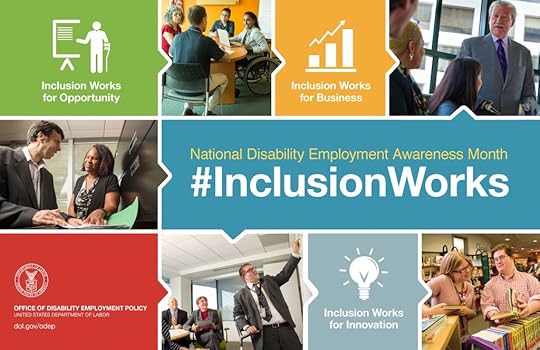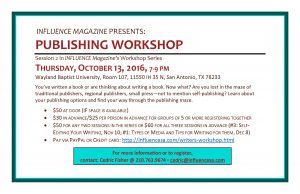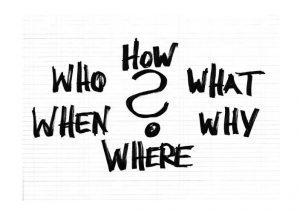Lillie Ammann's Blog, page 64
October 25, 2016
Domestic Violence Awareness Month
 October is National Domestic Violence Awareness Month. I hope you have no personal experience with domestic violence, but if you don’t, I hope you are or will become aware of the issue. We all need to be alert to the signs of abuse and to know what to do if we see them in someone around us.
October is National Domestic Violence Awareness Month. I hope you have no personal experience with domestic violence, but if you don’t, I hope you are or will become aware of the issue. We all need to be alert to the signs of abuse and to know what to do if we see them in someone around us.
I was so oblivious to abuse in early adulthood that I unknowingly failed to report child abuse. I taught a third-grade Sunday School class in a church whose membership mainly came from families stationed at two nearby Air Force bases. These families were patriotic Christians, not anyone I would have even considered could be an abuser.
Yet one morning, when one of my students knocked over a cup of coffee, spilling it on me, he reacted in a way I now recognize as being typical of someone who has been abused. He backed away, holding his hands up in front of his face, and apologized over and over again. I tried to reassure him I wasn’t injured, and the coffee would wash out of my dress. The accident was really my fault for having a cup of hot coffee in a room filled with exuberant third-graders.
I thought his reaction was way out of proportion to the incident. Years later, I realized his reaction wasn’t out of proportion if he was accustomed to being hit for a simple accident. I will always regret not recognizing the signs and taking action right away. His military father was transferred to another duty station not long after that, and I never saw the child again. I have thought of him often over the years. Was that child abused more and more because of my ignorance? Did he turn into an abuser in adulthood as so often happens?
That is my only personal experience with domestic violence, but when I started writing Dream or Destiny, my hero told me he and his sister (a murder victim) had been abused in childhood. I’ve always been skeptical when writers say their characters told them the story, but I experienced it in this book. I had no intention of having domestic violence as a theme of the book, but my characters guided me. I did a lot of research online–including reading first-person accounts of abuse–to make the story believable. One of the best compliments I have received on that book came from a book reviewer, Bluestocking, who asked if I had ever been a victim of domestic violence. She had served as a victim’s advocate for victims of abuse. Bluestocking said my character’s personality and actions were typical of adults who had experienced childhood abuse–so much so that she thought I was writing from personal experience.
Never again will I ignore abuse because I don’t know the signs. I hope you will join me in learning about domestic violence and working to stop it.
Husbands, love your wives, just as Christ also loved the church and gave Himself up for her. ~ Ephesians 5:25 (NASB)
Fathers, do not provoke your children to anger, but bring them up in the discipline and instruction of the Lord. ~ Ephesians 6:4 (NASB)
O MERCIFUL God, and heavenly Father, who hast taught us in thy holy Word that thou dost not willingly afflict or grieve the children of men; Look with pity, we beseech thee, upon the sorrows of thy servants who are victims of domestic violence. Remember them, O Lord, in mercy; endue their souls with patience; comfort them with a sense of thy goodness; lift up thy countenance upon them, and give them peace; through Jesus Christ our Lord. Amen. ~ adapted from 1928 Book of Common Prayer
Image: © Depositphotos.com/sdecoret
October 19, 2016
Disability Employment Awareness Month

October is Disability Employment Awareness Month.
Disability employment is a cause close to my heart. After my stroke, I spent time in a wheelchair, followed by five years using a motorized scooter. I remember the challenges I faced, and I operated my own business. I didn’t have to depend on anyone else for a job, but I did have to do business with other people who might doubt my ability to manage an interior landscape company when I couldn’t stand on my own two feet.
I remember one particular client visit. I had toured the atrium in the building to check on the work my staff did, then I met with the building manager in her office. We had a cordial discussion about the plants and our services, then I started to leave. However, her office had a short corridor from the office area to the exit, and I discovered that the corridor was too narrow for me to be able to position myself in such a way that I could reach the doorknob from the scooter. I had to back to scooter to her office and ask her to let me out.
The building manager walked over and opened the door. As I was maneuvering the scooter down the narrow passage, she said, “If I had to be on one of those things, I would never go out in public.”
I responded, “Every morning I have to make a choice. Will I lie in bed and feel sorry for myself or will I get up and go out in public on ‘one of those things.’ Every morning, I choose to keep living my life.”
She immediately apologized and explained that she had meant her comment to be a compliment, not a criticism. She didn’t think she would have the courage to make the choice to keep living.
“We never know how we would choose until we’re actually faced with the choice,” I said.
Millions of people with disabilities of all kinds face that decision every day, and they don’t all have the luxury I did of being my own boss. They must find an employer willing to give them a chance and perhaps make accommodations.
Fortunately, the Americans with Disabilities Act makes employment more accessible for many individuals who have disabilities along with great talent. The ADA was a new law when I had the stroke. People with long-time disabilities hadn’t started venturing out in great numbers, so it was common for my car to be the only one in a long row of handicapped parking spaces. Today, it’s more difficult to find a handicapped parking space because people with disabilities are no longer staying at home. They are in the marketplace and in the workplace. May each one have the opportunity to contribute.
October 13, 2016
Incentivized Reviews Vanish
 On October 3, 2016, Amazon.com changed its policy, and incentivized reviews are no longer allowed. Previously, it was acceptable for sellers to provide free samples or discounted products, including books, in exchange for reviews as long as the reviewer included a disclaimer. Many of the 1200+ reviews I’ve posted on Amazon included this statement: I received the product for free or at a discount in exchange for this honest, unbiased review.
On October 3, 2016, Amazon.com changed its policy, and incentivized reviews are no longer allowed. Previously, it was acceptable for sellers to provide free samples or discounted products, including books, in exchange for reviews as long as the reviewer included a disclaimer. Many of the 1200+ reviews I’ve posted on Amazon included this statement: I received the product for free or at a discount in exchange for this honest, unbiased review.
I have always given my honest opinion in all my reviews, regardless of whether I paid for the product or not. I try to point out what I like and don’t like about the product and give a star rating commensurate with my experience. The only difference is that I would not have purchased most of the products I received in exchange for a review—either because the product was a luxury I didn’t think I could afford or because I didn’t even know the product existed.
I started reviewing books when my first novel, Stroke of Luck, was released. If I wanted readers to review my book, I thought I should review the books I read. Over the years, as I wrote more and more reviews, authors started to ask me to review their books. I decided I should review everything I bought at Amazon, so soon sellers were asking me to review other products.
Many Amazon sellers are small, family-owned businesses with no advertising budget. Reviews are critically important to sales on Amazon, so sellers are happy to give away or heavily discount products to introduce their products to reviewers.
Most sellers and most reviewers are honest, but there are sometimes abuses. I have had a seller demand—unsuccessfully—that I change my review and give the product a 5-star rating, even though I didn’t believe the item merited 5 stars. But that kind of thing happened seldom, and I believe consumers can make up their own mind as to whether reviews are honest. They know by the disclaimer if the reviewer received any incentive, such as a discount.
Someone did research that showed incentivized reviews averaged slightly higher star ratings than non-incentivized reviews, and from that statistical fact they determined that incentivized reviews were inherently biased. However, that is not necessarily true. Reviewers who accepted free or discounted products were obligated to write a review; customers who paid full price had no such requirement. Most of us are more apt to write something negative if we’re unhappy than to write a positive review if we’re happy. We want people to know we didn’t get what we expected, but we don’t feel the same compulsion to tell others that we got exactly what we wanted and expected. Therefore, it’s quite likely that the greater percentage of positive reviews is simply an indication that reviewers who wrote incentivized reviews simply took the time to write reviews of more products they liked than purchasers who had no incentive to do so. Dissatisfaction is an incentive in and of itself to write a review; satisfaction is not.
I’m disappointed that Amazon has decided to change its rules, but as a private company, it is certainly free to make that decision. However, I think it’s unfair not to allow any type of transition. As of October 3, 2016, Amazon no longer allows incentivized reviews, even if the seller and reviewer had already made an agreement. For example, at that time I had more than two dozen products that I had agreed to review but hadn’t completed my evaluation. Some products were still in shipment at the time Amazon announced the policy change. So all those sellers provided free or discounted products to reviewers with the promise of reviews—and now the reviews are not allowed. As a reviewer, I feel guilty that I made review commitments that I can no longer honor.
Therefore, I started a review blog: Reviews by Lillie. First, I will post reviews that would have been posted on Amazon.com if they were allowed. Obviously, this won’t be of equal value to the sellers as a review on Amazon.com, but it’s the best I can do under the circumstances. I will also publish other reviews, especially my book reviews on Goodreads, and other products from Amazon and possibly from other sources as well. Hope you’ll visit my blog and read my reviews.
October 9, 2016
Clergy Appreciation Day
 I especially want to thank the clergy at my church, All Saints Anglican Church of San Antonio.
I especially want to thank the clergy at my church, All Saints Anglican Church of San Antonio.
Father Chip Harper – Rector
Father Isaac Rehberg – Assistant Rector
Deacon Marcus Tinajero
Deacon Barry Kowald
They are all godly men dedicated to serving the Lord and speaking the truth.
October 5, 2016
Workshop: Publishing Options
 The second workshop in INFLUENCE Magazine’s workshop series will focus on publishing options. The workshop will be held Thursday, October 13, 2016, 7 – 9 PM, at Wayland Baptist University in San Antonio.
The second workshop in INFLUENCE Magazine’s workshop series will focus on publishing options. The workshop will be held Thursday, October 13, 2016, 7 – 9 PM, at Wayland Baptist University in San Antonio.
Our first workshop–on writing for magazines and other media–was well-received by the attendees. A couple of them shared their thoughts:
“I enjoyed being updated on the current state of the print publishing industry. Also, we all need reminders of proper English writing standards. I look forward to the next workshop.” ~ Ilene
“Even if you’ve been to other writing workshops and think you’ve heard it all, Cedric Fisher’s insights and the suggestions/anecdotes shared by San Antonio editor and writer Lillie Ammann are fresh, sometimes novel and funny, and certainly practical. Cedric has worked in NYC and various magazine markets and offers the perspective and advice of an insider to prospective writers. I will be attending any future workshops he is offering.” ~ Nancy
This session we’ll be talking about publishing options:
Traditional/legacy/New York/”big publishing”
Small press and regional publishing
Subsidy/vanity publishing
Self-publishing/indie publishing
Q&A (You’re invited to submit your questions with your registration)
Join us if you’re written a book and don’t know what to do next or if you want to write to book but would like to know the whole process before you begin.
Download the flyer to learn more or visit the website to register.
In November, we’ll offer a workshop on self-editing, followed in December by a repeat of the first session. You can save money by registering for two or three sessions at once.
If you’re in the San Antonio area and interested in publishing, hope to see you next week!
Feel free to send the flyer to all the writers you know. There is also a discount for groups, so round up a few fellow writers and save some money.
September 27, 2016
5 Ways Reading Local Interest Books Changes Your Life—Guest Post from Harry Parsons
 If you’re someone who considers yourself to be a dyed-in-the-wool bookworm, then certain things are probably true of you. You most likely take great pride in being well read. You probably have multiple walls graced with well-stocked bookshelves at home, not to mention an enviable collection of ebooks stashed away on your Kindle. Books and information are favorite topics of conversation and, of course, you wouldn’t even consider going somewhere without at least one book in tow “just in case.”
If you’re someone who considers yourself to be a dyed-in-the-wool bookworm, then certain things are probably true of you. You most likely take great pride in being well read. You probably have multiple walls graced with well-stocked bookshelves at home, not to mention an enviable collection of ebooks stashed away on your Kindle. Books and information are favorite topics of conversation and, of course, you wouldn’t even consider going somewhere without at least one book in tow “just in case.”
You most likely are always also on the lookout for more things to read. That’s where local interest literature comes in. It covers a wealth of different topics for even the most voracious reader and information lover to explore. However, it’s also a subgenre even avid readers sometimes forget to consider.
Here’s a closer look at just a few of the ways getting into local interest books can improve even the most fulfilling intellectual life. Where will you be starting your next great intellectual journey?
1. You develop a richer understanding of American history.
When most of us are young and still in grade school, we think of American history as a seemingly never-ending list of names and dates. Eventually, if we undertake our own studies on the topic, we learn to put those names and dates into context. We begin to grasp the incredible intricacies of American history as a result.
Regional interest books add to your understanding of history’s richness by personalizing it for you. They don’t just teach you about important cultures, but also people and individual communities. You don’t just learn about the concepts behind American industry, agriculture, or law enforcement, but also the experiences of what it was really like to be an important part of those things. In other words, regional interest literature brings history to life in exciting new ways you never would have considered before.
2. You cultivate a deeper connection to your own roots.
Every family comes along with a family history of one sort or another. We all have the grandfather full of war stories from his youth or the great-grandmother who can still remember immigrating to Long Island from Italy, Israel, or Greece. We may have deeply intimate personal connections to the cities and neighborhoods where we grew up.
Regional interest literature can help you expand on those connections by enriching your understanding of what they’re really all about. Learn how your hometown was established or why your favorite local landmarks were built. Explore the experience of being an immigrant, a veteran, or an entrepreneur in America through the ages, with firsthand accounts and gorgeous vintage photography.

3. You develop a deeper understanding of your purpose as a human being.
If you were to sum up the importance of studying history in a nutshell, it would be how it teaches us about ourselves, not just as individuals, but as a society. History is humanity teaching itself how things started and how they continued over time. Most importantly of all, history sheds light on where we are now and where we’re likely going. It helps us avoid repeating past mistakes and allows us a fighting chance at creating the best possible future.
Local interest literature supplements broader history studies by filling in the gaps. You can explore the background of your profession of choice and get to know others who sought out the same profession before you. You can deepen your understanding of why national parks are important or why it’s critical that each of us study cultures other than our own. You gain a priceless understanding of what it means to be human in the process.
4. You get to know new places and people.
When you stick only to broader history texts, you’re more likely to keep reading about the same people, places, and events, again and again. Regional interest literature, on the other hand, is the perfect way to explore new places, new people, and new concepts you’re unlikely to have heard about otherwise.
Yes, regional interest books can help you build on your knowledge of well-known locations and peoples by adding new details to the mix. However, they can also introduce you to small towns and little-known communities from all over the nation. You’ll hear about them from the perspective of local experts and historians who know them inside out. After all, history isn’t just about the people and places who were so big they couldn’t help but make your high school curriculum. Each town, community, and neighborhood is also part of the equation.

5. You enter an entirely new world of information to explore.
If you’ve been reading all your life, you only think you’ve studied just about everything there is to study about history. One trip through a really good regional interest catalog will show you that you haven’t even scratched the surface yet.
Regional interest books cover a near limitless number of topics from an historically or culturally significant perspective. You can learn about not only immigrant culture, but the unique immigrant communities who populated every city in America. You can research regional cuisine or American cultural traditions. Dig more deeply into the background of your favorite county fairs, retail outlets, restaurants, or amusement parks. Even explore the roles your favorite sports have played throughout American history.
Start the Adventure Today
Regional interest literature teaches you that for every topic—every neighborhood, pastime, favorite food, or landmark—there’s an entire rich history just waiting to be explored. Learn all there is to know about anything at all, on a level that is as fascinating and personal as it is informative and educational.
Make sure you choose a solid publisher known for distributing high quality volumes written with care and published with passion. (Arcadia Publishing is an excellent example.) Start with one topic of interest and let your imagination lead you from there. You’ll love the way your world (and your mind) opens right up!
About the Author: Harry Parsons is a freelance writer who currently writes for a publishing company to pursue his passion of reading and writing.
September 22, 2016
Remembering Jack—Four Years Later
 Four years ago today, I sat by my husband Jack’s bed, holding his hand, as he peacefully went to be with the Lord. Although he was in a hospital bed, that bed was in the bedroom of the home he had designed and built nearly fifty years earlier. He left the place he loved to be in a place infinitely better and more glorious than we can imagine.
Four years ago today, I sat by my husband Jack’s bed, holding his hand, as he peacefully went to be with the Lord. Although he was in a hospital bed, that bed was in the bedroom of the home he had designed and built nearly fifty years earlier. He left the place he loved to be in a place infinitely better and more glorious than we can imagine.
A couple of weeks earlier, our priest, Father Chip Harper, had visited Jack in the hospital. He said, “Jack, you’re getting ready to make a trip. Do you have your bags packed?”
Jack answered, “Yes, I’ve been talking to God, and I’m ready.”
I’m so happy for him that he is with Jesus. He is free of pain, his memory is intact, and his personality is restored.
Yes, I’m happy for him—but I miss him so much.
ALMIGHTY God, we remember this day before thee thy faithful servant Jack, and we pray thee that, having opened to him the gates of larger life, thou wilt receive him more and more into thy joyful service; that he may win, with thee and thy servants everywhere, the eternal victory; through Jesus Christ our Lord. Amen. ~ 1928 Book of Common Prayer
For more about Jack, visit his memorial page.
September 21, 2016
World Alzheimer’s Day
 Today is World Alzheimer’s Day, a day to raise awareness of Alzheimer’s Disease. This is very close to my heart because of my personal experiences:
Today is World Alzheimer’s Day, a day to raise awareness of Alzheimer’s Disease. This is very close to my heart because of my personal experiences:
My grandfather had what I’m sure now was Alzheimer’s, but nearly six decades ago, it was called “hardening of the arteries.” At age twelve, I watched him being forced into the car to be taken to the state mental hospital. He had tried to choke my grandmother, whom he had adored, and was a danger to himself and others. He was locked in the hospital, and I never saw him again.
Three decades later, I was one of several caregivers for my father after he was diagnosed with Alzheimer’s. We kept him at home as long as we could, but we eventually had to place him in a care home because he required full-time skilled care. Praise God, we were able to take him home to die on his beloved farm with his cherished family.
Nearly two decades after my father’s death, my husband Jack developed Alzheimer’s. I was so blessed to be able to care for him until his death four years ago. He died of kidney failure before his disease reached the severity of my father’s or my grandfather’s, and I am so thankful that he knew me to the end.
You can understand that every time I have a “senior moment” (and I have more of them than I like to admit), I start wondering… I also try to keep my mind active, reading an average of five books a week and doing online activities like jigsaw puzzles and vocabulary quizzes.
If you haven’t experienced loved ones with Alzheimer’s, World Alzheimer’s Day is a good time to learn more about the disease. The virtual dementia tour gives people an opportunity to experience a few minutes of what it’s like to have the disease. My social worker sister Nancy, who is incredible in working with dementia patients, gives the virtual tour periodically. People who go through it are always dramatically impacted.
You can see a little of what it’s like in the following video:
Image: © Depositphotos.com/alexraths
September 11, 2016
August 30, 2016
Writing Poetry—Yay or Nay? Guest Post from Susanne Loxton
 Writing poetry for enjoyment as well as publishing it for the world to see might serve as a great way of testing your writing skills in a new environment and sharing your personal experiences and observations with others. However, the field of poetry is an industry of its own, and writing poems for your own pleasure or in hopes of letting your prospective readers in on your vision of the world around may come with both rewards and challenges.
Writing poetry for enjoyment as well as publishing it for the world to see might serve as a great way of testing your writing skills in a new environment and sharing your personal experiences and observations with others. However, the field of poetry is an industry of its own, and writing poems for your own pleasure or in hopes of letting your prospective readers in on your vision of the world around may come with both rewards and challenges.
Here are six pros and cons of writing—and publishing—poetry.
Pros
1. Creative Expression
Creative expression is greatly undervalued in the world today. Where do we get an opportunity to share our own unique view of the world with others in a way that resonates with us on a deep, soulful level? Writing poetry gives us that chance. Poetry is a vehicle of expression that creates a safe place for us to share our unique humanity.
2. Contributing to the World
Literature gives us a way to understand the world around us. When we read stories and poems we realise that others have experienced the same emotions as we have. It shows us that life is eternal in its suffering but also in its joy. Without people taking the time and initiative to sit down and craft those stories and poems we wouldn’t have that—and I believe that life would be greatly poorer for it.
3. Increased Intellectual Fluidity
Writing a good, technically accomplished poem requires both a knowledge of poetic techniques and an understanding of how to apply them. As you grow more accomplished in your writing you start to think with a mind for syllables and sounds, you consider beat and rhythms. As you mold your poem into its final shape you give your brain quite a workout. This is great for helping younger minds to develop and keeping ageing minds young. Talk about a win-win situation.
Cons
1. Dwindling Art Form
Unfortunately, the numbers of people reading and writing poetry are dropping day by day. This shouldn’t come as a surprise to anyone, but with the rise of technology, our attention spans are getting shorter. Poetry is often found hard to understand simply because of the level of attention to detail that’s required to draw a full reading of a poem. We may lament it, but it is simply a fact of life today.
2. Limited Remuneration
Although money is by no means all that matters in life, we do need to be able to sustain ourselves in order to be able to continue our work. Poetry collections do not sell in great numbers and so the publishing deals that you may get offered won’t be that lucrative. So, unless the revenue you could receive from your work is not as important to you as the outreach of your writing, its amount may serve as a major discouragement to pursue your poetry aspirations.
3. Poetry Takes Time to Perfect
Poetry is an art form which just like any other art requires lots of practice to perfect. What this means in practical terms is that it can take time before you are at a level where your work will reflect your actual skills or publishers see enough value in your work to deem it publishable. Of course, there is always the route of self-publishing but this requires a lot of work on your part to get your work into the shops so that readers can actually buy it.
Poetry is a special art form, and many professional writers may have an inside desire to pursue it as an additional source of income or just as their way to express their outlook in rhymes and polish their craft in a different than usual way. As any other type of writing, it has its positive as well as negative sides, and now that you’re aware of both you can make a more informed decision of whether you are willing to give it a try. Good luck!
Author Bio: Susanne Loxton is an experienced writer with a passion for learning and education. On a daily basis, Susanne works for Aubiz, a compendium of knowledge about companies in her native Australia. Follow her on Twitter @LoxtonSusanne.
Image: © Depositphotos.com/danr13



